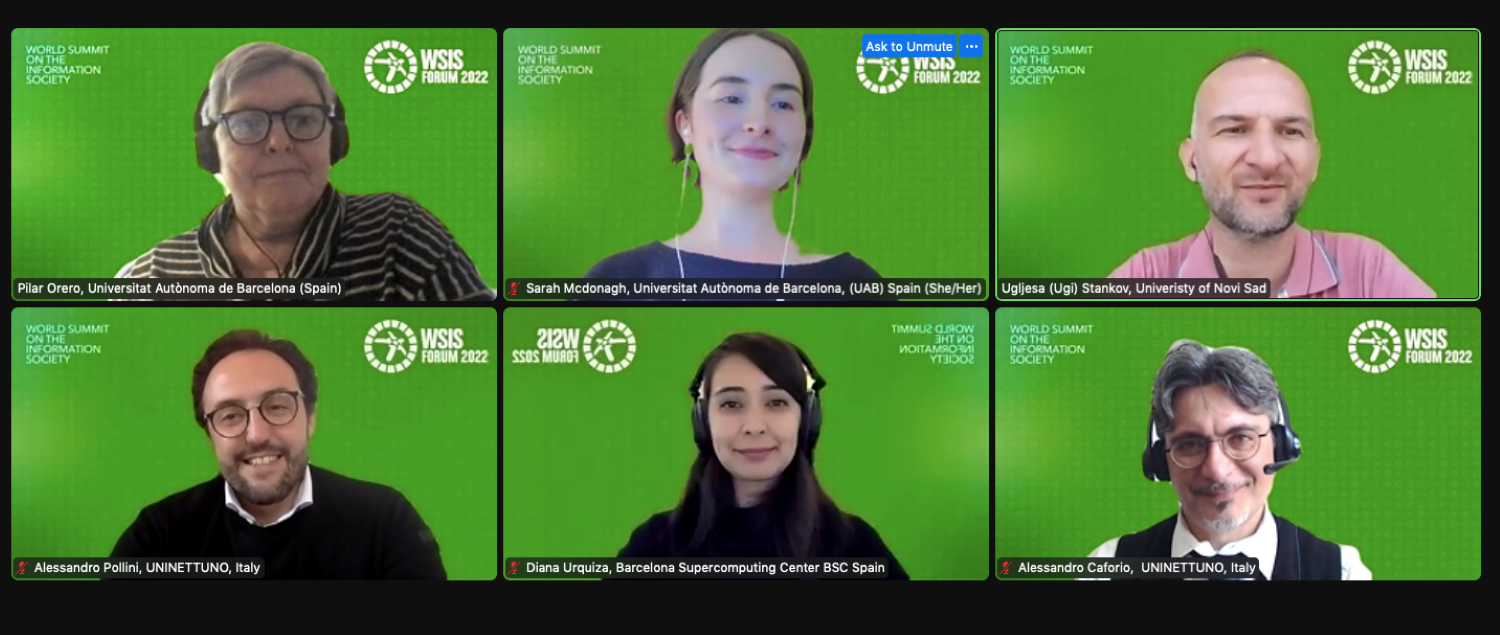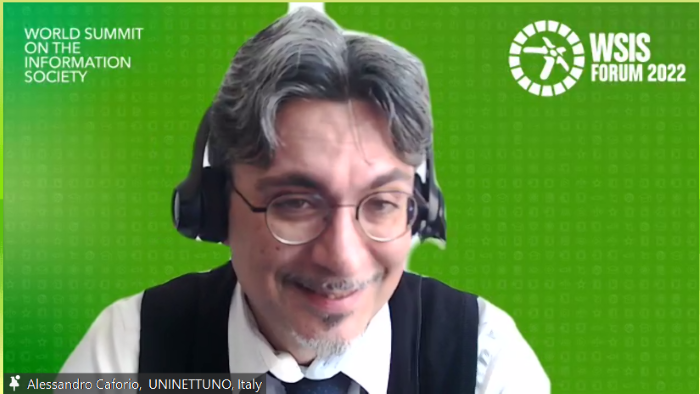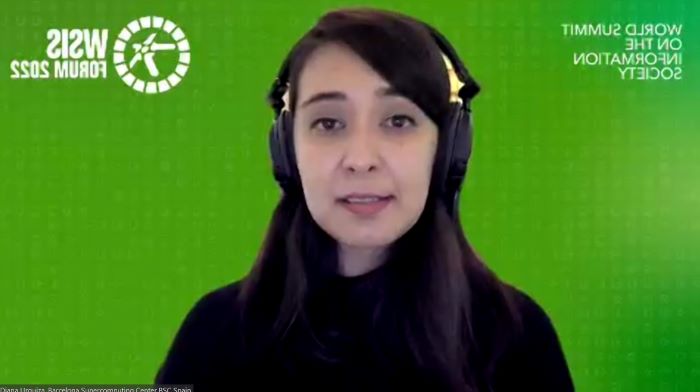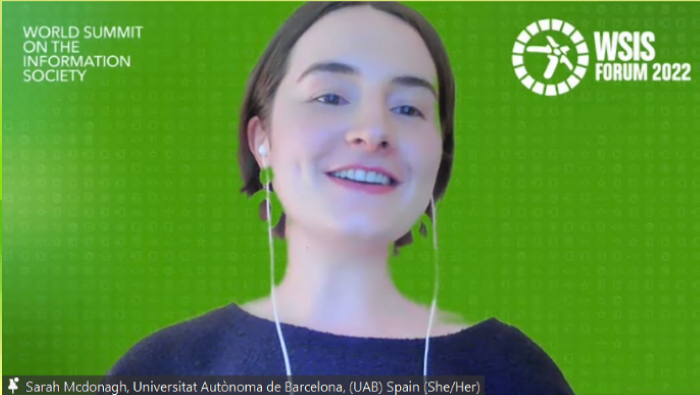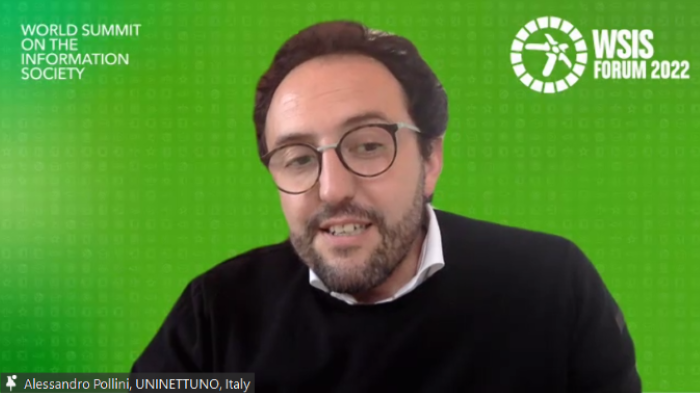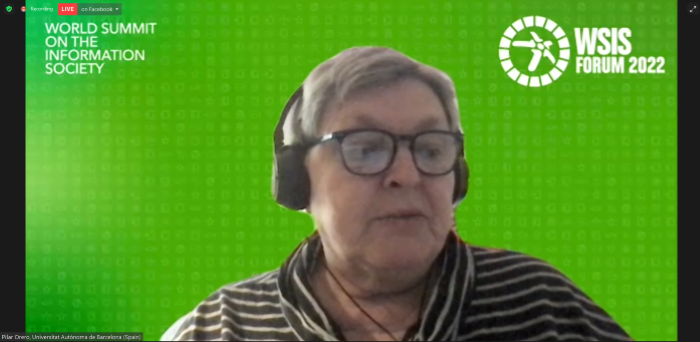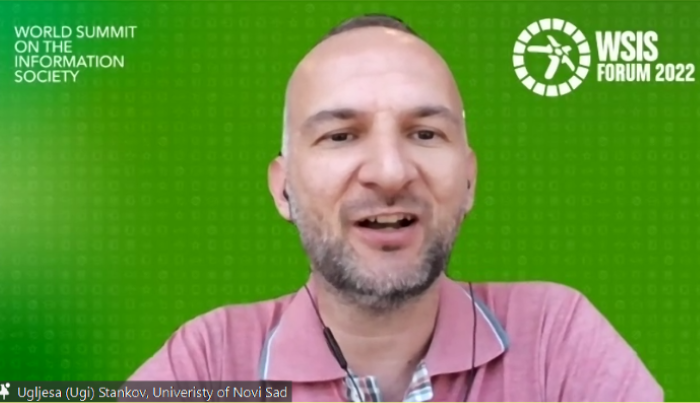Green Digital Accessibility
Universitat Autonoma de Barcelona
Session 363
Green Digital Accessibility Climate change has forced all of us to reconsider how we live. While we are increasingly aware of the environmental cost of what we buy and consume, less attention is paid to the environmental impact of our gadgets and media habits. Today, media is ubiquitous, and consequently its impact on the environment is unavoidable. Still many people are surprised when they learn of the environmental cost of media. The British Academy of Film and Television Arts (BAFTA) estimates that the annual emissions from UK film production totals in excess of 149,000 tonnes of CO2 (the equivalent of the total CO2 output of a small village), while figures from Greenpeace suggests that Information and Communications Technologies (ICT) generate up to 3% of global carbon emissions (on par with air travel). It is estimated that by 2030, ICT electricity usage could contribute up to 23% of the globally released greenhouse gas emissions. Therefore, digital assets need to be labeled as any other energy consuming goods, towards understanding of the pollution generated by daily media consumption activities, such as storing pictures and videos, remote meetings, etc. Thus, the media industry also needs to be aware of their input to global warming, where transparency in the information is one of the most powerful arms, including establishment of a EU system to measure and label CO2 emission. Despite the fact that the field of media accessibility is increasingly technologically focused, the topic of sustainability has not yet received any attention in the field. Media accessibility invariably adds layers of alternative communication services towards fulfilling the United Nations Conventions on the Rights of Persons with Disabilities (UNCRPD). Accessibility requirements, such as subtitles, audio description, or sign language interpreting require more energy and consequently increase the carbon footprint of media. Nevertheless, the extent of the environmental impact of these access services has not been fully acknowledged. The environmental cost of media accessibility is therefore a topic that demands further investigation. The main objective of the conference is to generate discussion and move research on green issues forward. Therefore, we would encourage those inside and outside the field of media accessibility to participate. We seek novel ideas and further research directions that bridge the gap between media accessibility and sustainability.
Captioning for this event will be available at the following link: https://www.streamtext.net/player?event=ITU-WSIS
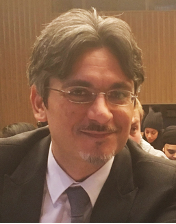
Alessandro Caforio is the Director of Research and Innovation department at International Telematic University UNINETTUNO, and professor of Psychotechnologies and learning processes and Digital technologies and cognitive processes courses in Psychology and Communication science faculties of the university. His work focuses on innovation in technological and organizational models for higher and professional education. He is part of international task forces on Course and curriculum design, AI in education, continuous professional development. He designed and participates in several EU funded projects mainly in Erasmus+ and Horizon programs, and coordinates GreenSCENT project.

Diana Urquiza is the Product Designer in the Earth Sciences Department at the Barcelona Supercomputing Center (BSC). She has more than 10 years of experience working with digital products. Her efforts have been mostly focused on User Interface Design on e-learning services in the private sector before joining the BSC. She currently designs and directs digital products while implementing Innovation and Design Thinking methodologies. Her latest work has been involved in EU-funded projects across the Earth System Services group at the BSC. Her fields of interest are the whole life-cycle of digital products, from the user experience research to the user testing of implemented products.
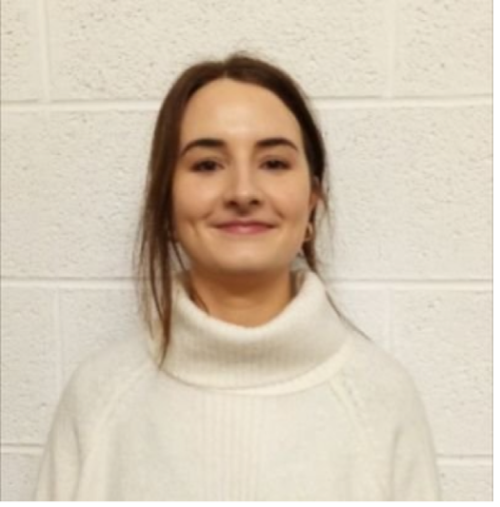
Sarah McDonagh is a postdoctoral researcher at Universitat Autònoma de Barcelona (Spain) in the TransMedia Catalonia lab. Sarah’s research focuses on media accessibility, specifically access to cultural heritage and sustainability. She has authored several articles on media accessibility. She has previously worked as a research assistant on the Accessible Culture and Training (ACT) Project and been involved in the development of accessible videos for the Prisons Memory Archive in Northern Ireland.
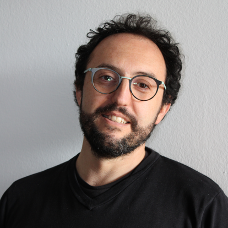
Alessandro Pollini is an Interaction Design researcher at the International Telematic University Uninettuno. He is a designer and cognitive ergonomics specialist, experienced both in R&D and product design projects. He has been involved in EU Research and Innovation Projects for +15 yrs in fields such as ICT, Ubiquitous Computing, Human-Robot Interaction, Technology-enhanced Learning and Security.
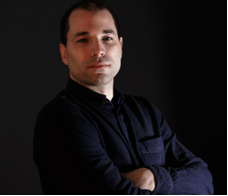
Miroslav Vujičić is associate professor at the University of Novi Sad, Faculty of Sciences. He is main evaluator for impact assessment of European Capital of Culture Novi Sad 2022 and chief researcher for sustainability and impact assessment for Expo 2020 Dubai. Main field of interest is decision making processes, project management, product development, cultural tourism and has proficiency skills in data gathering, analysis and interpretation of mathematical and statistical methods.
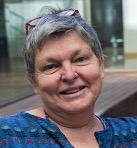
PhD (UMIST, UK) works at Universitat Autònoma de Barcelona (Spain) in the TransMedia Catalonia Lab. She has written and edited many books, nearly 100 academic papers and almost the same number of book chapters --all on Media Accessibility. Leader and participant on numerous EU funded research projects focusing on media accessibility. She works in standardisation and participates in the UN ITU IRG-AVA - Intersector Rapporteur Group Audiovisual Media Accessibility, ISO and ANEC. She has been working on Immersive Accessibility for the past 4 years first in a project called ImAc, which results are now further developed in TRACTION, MEDIAVERSE, MILE, and has just started to work on green accessibility in GREENSCENT. She leads the EU network LEADME on Media Accessibility.
-
 C8. Cultural diversity and identity, linguistic diversity and local content
C8. Cultural diversity and identity, linguistic diversity and local content
Encouraging and facilitating people-centered and inclusive governance models and mechanisms. Strengthening open, democratic, transparent and inclusive WSIS multistakeholder approach, enabling all stakeholders to participate according to their respective roles and responsibilities, in the implementation of the Geneva Plan of Action.
-
 Goal 4: Ensure inclusive and equitable quality education and promote lifelong learning opportunities for all
Goal 4: Ensure inclusive and equitable quality education and promote lifelong learning opportunities for all
-
 Goal 10: Reduce inequality within and among countries
Goal 10: Reduce inequality within and among countries
-
 Goal 11: Make cities inclusive, safe, resilient and sustainable
Goal 11: Make cities inclusive, safe, resilient and sustainable
-
 Goal 13: Take urgent action to combat climate change and its impacts
Goal 13: Take urgent action to combat climate change and its impacts
-
 Goal 16: Promote just, peaceful and inclusive societies
Goal 16: Promote just, peaceful and inclusive societies
-
 Goal 17: Revitalize the global partnership for sustainable development
Goal 17: Revitalize the global partnership for sustainable development
Encouraging and facilitating people-centered and inclusive governance models and mechanisms. Strengthening open, democratic, transparent and inclusive WSIS multistakeholder approach, enabling all stakeholders to participate according to their respective roles and responsibilities, in the implementation of the Geneva Plan of Action. Expanding access to and use of ICTs to all, including broadband and mobile services, particularly to vulnerable and marginalised peopleEnsuring universal access to information and knowledge and the capacity to use ICTs for all people, including by offering services and ICTs that are inclusive of, accessible and affordable for persons with disabilities Ensuring universal access to information and knowledge and the capacity to use ICTs for all people, including by offering services and ICTs that are inclusive of, accessible and affordable for persons with disabilities
Facebook: https://m.facebook.com/Greenscent.eu/
LinkedIn: https://www.linkedin.com/company/greenscent-project/
Youtube:https://www.youtube.com/channel/UC-txjYdA67FGfeEfZJopCgw
Twitter: https://mobile.twitter.com/greenscent_eu
